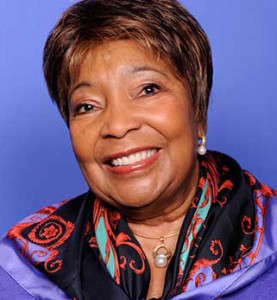
Congresswoman Eddie Bernice Johnson
The shooting of a young African-American teenager, Michael Brown, by a White Ferguson, Missouri law enforcement officer has pushed that St. Louis suburban area to the boiling point. It also contains many lessons for the rest of the country, and an opportunity for change.
In the nights that followed the shooting, groups of protesters displayed their frustration and anger. They were confronted by local police officers who were armed as if they were about to do battle with foreign terrorists, not American citizens engaged in peaceful protests.
The problems in Ferguson, however, are deeper than the tragic shooting of young Michael Brown. They reflect patterns of racial injustice and political imbalance in a city in which members of its elected government, and citizens concerned with justice and prudence must work hard to correct.
In the city of Ferguson, 67 percent of the residents are African American. Yet, the city’s police force is 95 percent white. Five of the six members of the City Council are white. In 2013, 92 percent of all police searches of individuals in Ferguson, 86 percent of all stops made by the police and 93 percent of all arrests were of African Americans, according to official reports. These disparities, no doubt, led to the unrest that occurred in Ferguson.
The leadership of the city must do more to recruit minority candidates to become members of the police force. At the same time, members of the minority community must do all that they can to identify and support candidates for elected office.
The leadership of Ferguson must insist upon the implementation of Community Policing, a policy developed in Texas in which police and citizens work together to protect communities from crime and violence. Under the system of Community Policing, members of the police force are not viewed as enemies. Rather, they are perceived as protectors of citizens, and their property. A partnership is formed with residents and business owners interacting closely with law enforcement officials.
Perhaps if Community Policy were in effect in Ferguson, the officer accused of killing Michael Brown would called him over to his police car so that the two of them could talk, rather than engage in a confrontation, as some witnesses to the incident have alleged.
We must never again witness the types of military hardware displayed on the streets of Ferguson, with swat team snipers poised to shoot at protesters. This is not the American way. We must also understand that the conditions that precipitated events in Ferguson exist in other cities throughout our country. And we must take steps to rectify those conditions before we witness a repeat of what most Americans found revolting in a city located in the heartland of our democracy.


